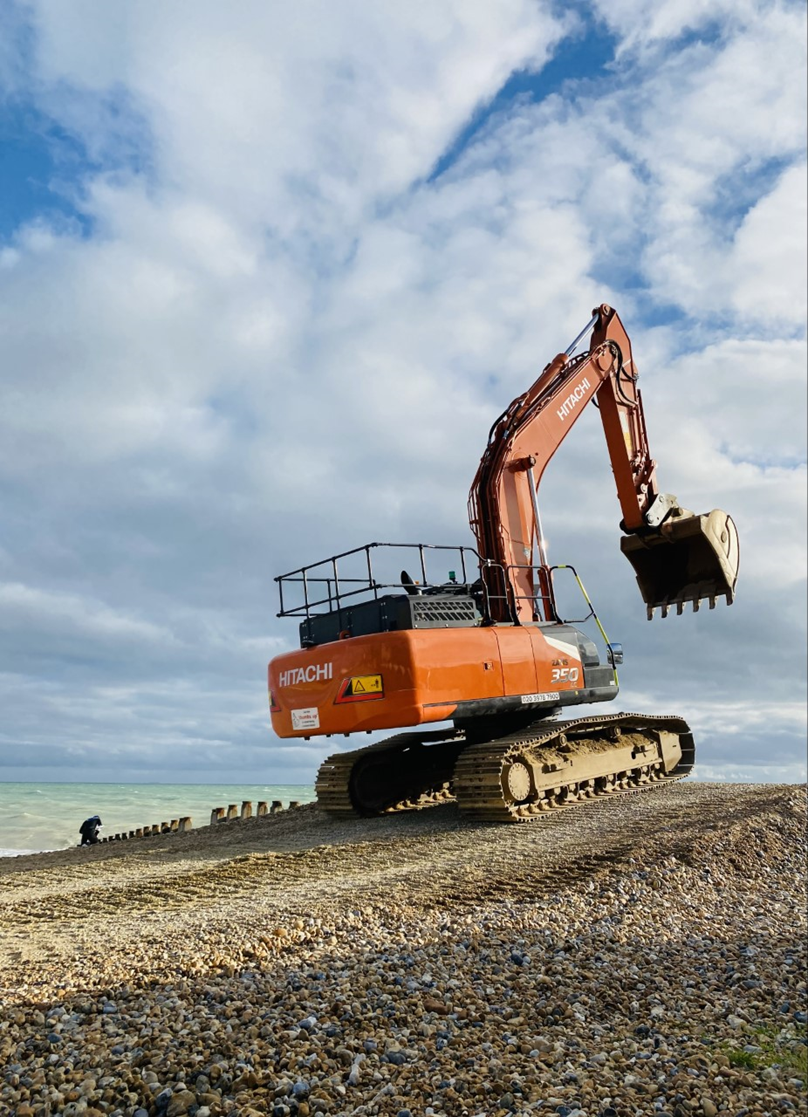Eco-anxiety is escalating with relentless climate change
- Maya Caan

- Nov 30, 2022
- 4 min read
As temperatures exceeded a scorching 40°C degrees in parts of the UK this summer, global news channels shared climate crisis stories worldwide. From Iceland’s colossal volcanic eruption to extreme heatwaves and droughts across Europe, Spain and Greece, Portugal’s combat with wildfires, Bangladesh, Pakistan and South Korea’s most brutal floods and rainfall in decades, and the World Food Programme reporting hundreds of thousands of people experiencing starvation and acute malnutrition in parts of Africa, Asia and the Middle East due to flooding, hurricanes, cyclones and droughts. The ramifications of climate change are pushing us to the brink and propelling eco-anxiety, described as worry and distress induced by global warming and human activity causing harm to the environment. Do you ever experience this? My viewpoint and experience of eco-anxiety add to previous Inspire the Mind blogs addressing this salient topic.
I am a photographer, completing training as an Occupational Therapist in London and have worked in the healthcare sector for a few years. On my recent travels to various parts of the UK and abroad, whenever I encounter iconic and beautiful landscapes and stop to capture these through my lens. I constantly deliberate our climate change crisis with a degree of eco-anxiety.

Regardless of the stunning landscapes and scenic beauty, the harsh reality of the damage around me is clearly visible. Incessant plastic pollution on the shorelines everywhere I venture, the disappearing Dead Sea, chalk stalks on our Kent Coast disintegrating, falling lake levels, eroding coastlines, and the list goes on. As our natural world changes quicker than anticipated, we are witnessing economic, health and social effects due to rising sea levels, extreme storms, unprecedented heat waves, ocean acidification and starvation, to name a few dire consequences.

Prompting the first unequivocal global commitment to combat the climate crisis in 2015, referred to as the Paris Agreement, the race against climate change is still not happening fast enough. In 2015, 197 countries and the European Union signed an agreement to significantly decrease global greenhouse gas emissions to curb global temperature increase to 1.5°C in the 21st Century. This 1.5°C limit anticipates smoother adaptation and the world enduring lesser negative repercussions. Despite world leaders recently attending the 27th Conference of Parties (COP27) in Egypt, one questions why the world is still way off track from its target of reducing pollution that propels climate change.
Astoundingly, 43% of adults in the UK reported eco-anxiety and worry about the environment’s future in October 2021. In December 2021, a study of children and young people (aged 16–25 years) from countries globally found that nearly 60% are ‘very’ or ‘extremely’ anxious about climate change, negatively impacting the daily lives of more than 45% of participants. Its harrowing to fathom how many are being affected daily both emotionally and psychologically. I recently photographed a few climate change protests in London and the number of young people who shared experiencing eco-anxiety was staggering. Regardless of being motivated and empowered to make changes, they feel somewhat disappointed in government actions, support received and pace of change. Their response was not surprising if the current efforts to decrease and prevent the emissions of greenhouse gases by developed countries, who are the major emitters, is anything to be judged by.

A survey in 2020 of child psychiatrists in England reported that more than 57% of children they have consultations with experience anguish and fear connected to climate change. Sadly, eco-anxiety is not restricted to the UK but has profound emotional, social, functional and cognitive effects on all generations worldwide.

Pikhala’s 2019 publication describes the relationship between psychological and social defences and eco-anxiety as a method of coping and processing emotions and struggles associated with climate change. Denial and ‘socially constructed silence’ produce more anxiety and increase emotional stress, as explained by Norgaard, sociologist and professor of environmental studies in 2011.
Flooding is becoming more prevalent in the UK due to climate change and is linked to anxiety, depression and PTSD (post-traumatic stress disorder). An astounding 40% of people globally, including those with present mental and physical health conditions, are considered most at risk due to the ramifications of global warming.
Out of 95 countries surveyed in 2021 by the World Health Organisation (WHO), nine have incorporated mental health support in their climate change and national health schemes.
Is this a caveat of what is to come? We need to heed this as a wake-up call, and countries must concentrate more on improving mental health access and services to support local communities of all ages in order to better tackle climate change.

The approach to tackling climate change internationally should not only focus on government plans to reduce emissions and implement more sustainable solutions. Addressing the ensuing mental health crisis, especially in social inequality situations and disadvantaged groups, are also paramount.

National and local policymakers, communities, businesses, charities, doctors, nurses, healthcare workers, and mental health professionals must work collaboratively to enhance resilience and provide support for those affected by climate change.
Undoubtedly, this can inspire and empower people to take action and provide hope to better cope with eco-anxiety and the future.
All images in this blog are photographs taken by the author, who published her photographic work under @Mica_Lens, 2022.




